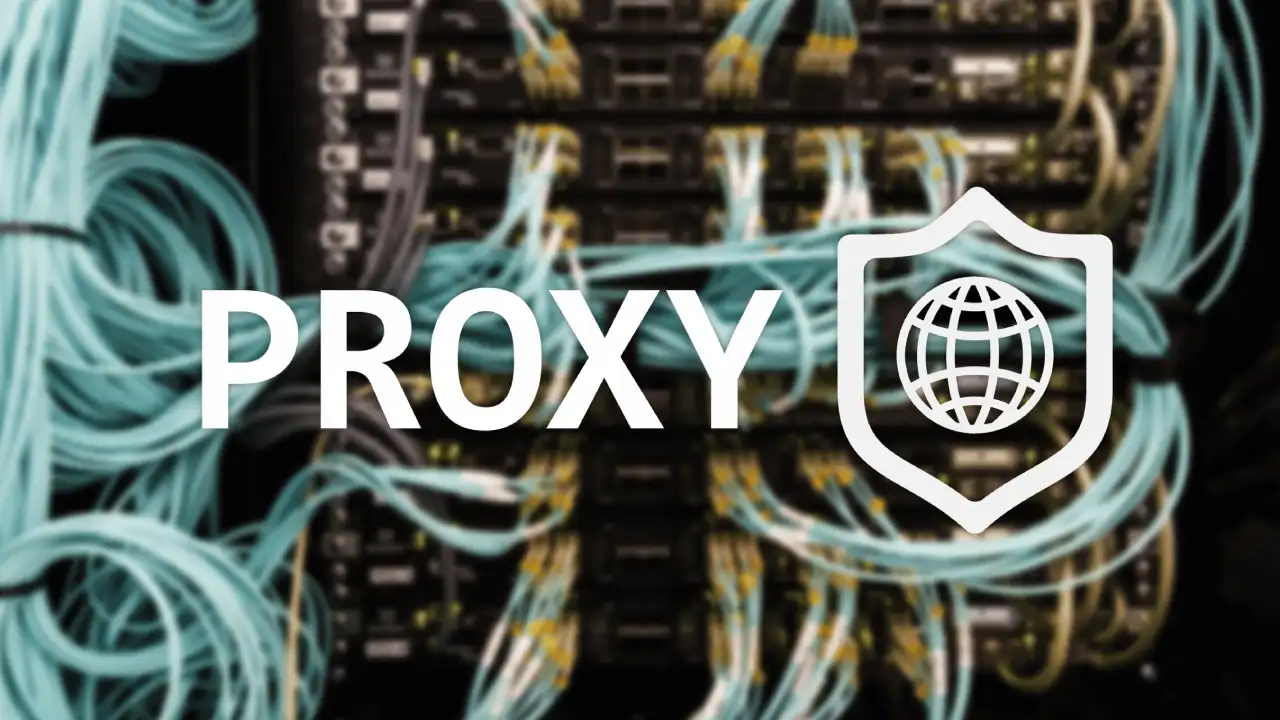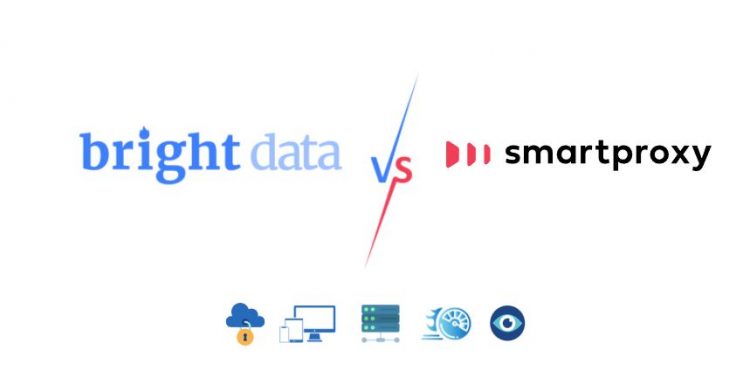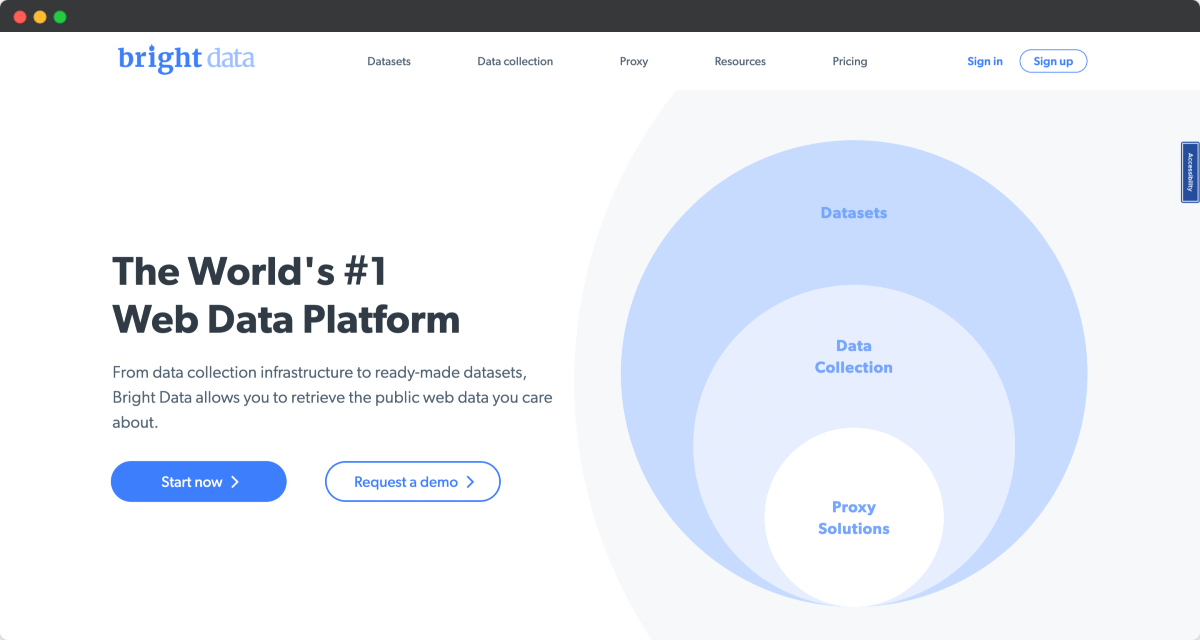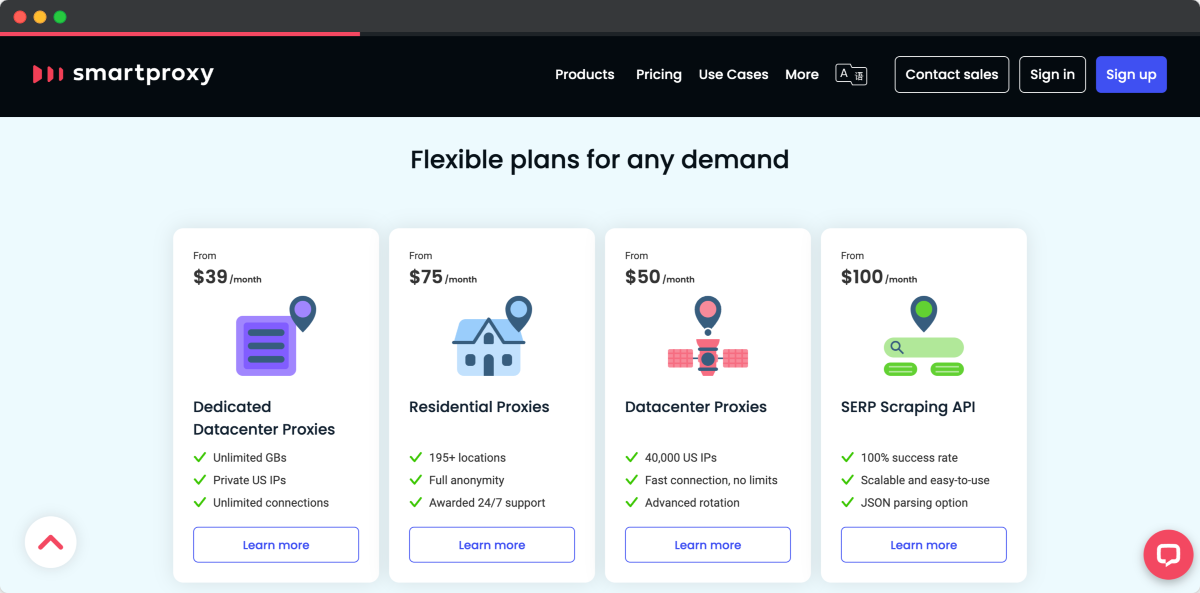When it comes to web scraping, data gathering, or securing your online activities, proxies play a crucial role. With more businesses and individuals relying on proxies to maintain privacy, perform market research, and protect their data, the demand for reliable proxy services has skyrocketed. In fact, according to recent data, the global proxy market is expected to reach $3.1 billion by 2027, growing at a rate of 13.5% annually.
Among the leading providers in this space are Bright Data and Smartproxy, two companies that offer robust and reliable proxy solutions. But which one is the best fit for you? In this article, we’ll dive deep into a head-to-head comparison of Bright Data vs. Smartproxy, examining everything from features and pricing to customer support and performance. By the end, you’ll have a clear understanding of which provider stands out as the superior choice for your needs.
Bright Data Overview
Bright Data, formerly known as Luminati Networks, was founded in 2014 as a division of the Hola VPN company. In 2017, it became an independent entity under the ownership of EMK Capital, a UK-based private equity firm.
Headquartered in Tel Aviv, Israel, Bright Data has grown to support over 20,000 organizations globally, including more than 700 partner organizations, 300 academic institutions, and 180+ nonprofit organizations. The company has been led by CEO Or Lenchner since 2018.
Proxy Types and Features
Bright Data offers a comprehensive suite of proxy solutions tailored for enterprise needs:
- Residential Proxies: Access to over 150 million ethical residential IPs across 195 countries, with features like sticky and rotating sessions, ~0.7-second response times, and 99.95% success rates.
- Datacenter Proxies: High-speed, reliable proxies suitable for large-scale data extraction tasks.
- Mobile Proxies: Global mobile IPs designed for mobile-focused data collection.
- ISP Proxies: Static residential proxies offering a blend of datacenter speed and residential authenticity.
Smartproxy Overview
Founded in 2018 and headquartered in New York City, Smartproxy is a rapidly growing proxy service provider that has garnered a reputation for delivering reliable and cost-effective web data solutions.
Despite being an unfunded company, Smartproxy has expanded its operations globally, serving over 85,000 clients, including Fortune 500 companies and individual entrepreneurs.
Proxy Types and Features
Smartproxy offers a diverse range of proxy solutions tailored to various use cases:
- Residential Proxies: Access to over 65 million ethically sourced IPs across 195 locations, providing high anonymity and reliability for tasks like web scraping and market research.
- Datacenter Proxies: High-speed proxies suitable for tasks requiring large-scale data collection, with options for both rotating and static sessions.
- Mobile Proxies: Over 10 million mobile IPs from 160+ locations, ideal for tasks that require emulating mobile user behavior.
- Static Residential (ISP) Proxies: Dedicated IPs that combine the benefits of residential proxies with the speed of datacenter proxies, available on a pay-per-GB or pay-per-IP basis.
Comparison of Key Features

When choosing between Bright Data and Smartproxy, it’s essential to consider the specific features that each provider offers. Below is a detailed comparison of their key features to help you make an informed decision.
1. Proxy Pool Size
- Bright Data:
- Over 150 million residential IPs, with coverage across 195 countries.
- Large pool of mobile and datacenter proxies, providing a diverse set of IP addresses.
- Smartproxy:
- Over 65 million residential IPs, available in 195 locations.
- Offers mobile and datacenter proxies, but the pool is smaller compared to Bright Data.
2. Speed and Performance
- Bright Data:
- Known for its high-speed proxies with a <0.7-second response time.
- Excellent reliability with a 99.95% success rate for tasks like web scraping.
- Smartproxy:
- Offers fast proxies with low latency, though slightly slower than Bright Data.
- 99.9% uptime for general proxy use.
3. Reliability and Uptime
- Bright Data:
- Known for high reliability, with a solid reputation for uptime and stability.
- 99.95% uptime guarantee, ensuring proxy availability for crucial business tasks.
- Smartproxy:
- Also reliable with a 99.9% uptime, making it suitable for most use cases.
- The network might be a bit more prone to slowdowns during peak times compared to Bright Data.
4. Security Features
- Bright Data:
- Strong security with encryption for data protection.
- Provides customizable proxies with IP rotation and sticky sessions.
- Ethical and compliant practices to ensure privacy and data protection.
- Smartproxy:
- Offers basic security features such as encryption.
- Includes IP rotation for anonymity and automatic proxy switching.
- Focuses on privacy and ethical data collection, but lacks some advanced features of Bright Data.
5. Ease of Use
- Bright Data:
- Features a robust but complex dashboard suited for enterprises and large businesses.
- It can be challenging for beginners, but offers strong documentation and customer support.
- Smartproxy:
- Known for its user-friendly interface and ease of use.
- Simple setup process and intuitive dashboard that appeals to both beginners and experienced users.
6. Geographic Coverage
- Bright Data:
- Extensive geographic coverage with proxies available in 195+ countries.
- Offers local and regional IPs, allowing for precise targeting of specific markets.
- Smartproxy:
- Covers 195 locations globally, but with fewer IPs per region compared to Bright Data.
- Well-suited for general proxy use but may lack granular targeting in certain areas.
7. Special Features
- Bright Data:
- Advanced scraping tools like Content Delivery Network (CDN) integration, web scraping API, and real-time data collection.
- Proxy rotation and advanced session management for tailored use cases.
- Smartproxy:
- Rotating proxies and easy integration with various third-party tools.
- Special focus on easy-to-use solutions for less technical users.
8. Pricing
- Bright Data:
- Premium pricing, starting from $8.4 per GB for residential proxies.
- Monthly packages, such as the Growth plan at $499/month, are for heavier users.
- Smartproxy:
- More affordable, starting at $8.5 per GB for residential proxies.
- Subscription plans start from $75/month with 5GB for small to medium businesses.
9. Customer Support
- Bright Data:
- 24/7 support through multiple channels (email, live chat, phone).
- Comprehensive documentation and a dedicated account manager for enterprise customers.
- Smartproxy:
- 24/7 support via email and live chat, with a reputation for responsive customer service.
- An extensive knowledge base and tutorials to assist with common issues.
Pricing Comparison

When selecting a proxy provider, pricing is a crucial factor. Below is a detailed pricing comparison of Bright Data and Smartproxy, outlining the various options available for both services.
| Feature | Bright Data | Smartproxy |
|---|---|---|
| Residential Proxies | – Pay-As-You-Go: $8.4 per GB – Monthly Plan: – Micro Plan: $10/month for 138GB – Growth Plan: $499/month for 138GB | – Pay-As-You-Go: $8.5 per GB – Monthly Plan: – Starter Plan: $75/month for 5GB – Advanced Plan: $400/month for 50GB |
| Datacenter Proxies | – Starts at $2 per GB | – Starts at $2.20 per GB |
| Mobile Proxies | – Starts at $5.88 per GB | – Starts at $6 per GB |
| ISP Proxies | – Starts at $1.3 per IP | – Starts at $5.50 per IP |
| Proxy Pool Size | – 150 million+ residential IPs | – 65 million+ residential IPs |
| Geographic Coverage | – 195+ countries | – 195 locations |
| Uptime Guarantee | – 99.95% | – 99.9% |
| Support | – 24/7 support with dedicated account managers | – 24/7 support via email and live chat |
| Ideal For | – Large enterprises needing advanced features | – Small to medium businesses or individuals |
Use Cases and Target Audience
When choosing between Bright Data and Smartproxy, it’s essential to understand how each service fits different use cases and who they are best suited for. While both offer reliable proxy solutions, their core features and pricing structures cater to distinct types of users and business needs.
In this section, we’ll explore the primary use cases for each service and identify the ideal target audience, helping you determine which provider aligns best with your goals.
Whether you’re a large enterprise, a small business, or an individual looking for a cost-effective solution, understanding these key differences will guide your decision.
| Feature | Bright Data | Smartproxy |
|---|---|---|
| Web Scraping | Large-scale data collection, enterprise needs | Small to medium-scale scraping, budget-friendly |
| Ad Verification | Advanced tools for large-scale ad monitoring | Cost-effective ad verification for smaller projects |
| Social Media Management | Managing multiple accounts in different regions | Social media automation and management |
| SEO & SERP Tracking | High-level SERP tracking across regions | Basic to medium-level SERP tracking |
| Market Research & Intelligence | Advanced market research, competitor tracking | Price monitoring and competitive intelligence |
| Target Audience | Large enterprises, tech-savvy businesses | Small to medium businesses, budget-conscious users |
Customer Support and Satisfaction

Customer support and overall satisfaction are vital considerations when choosing a proxy provider. A responsive and knowledgeable support team can help resolve issues quickly, ensuring that businesses can rely on their proxy service without major interruptions.
Below, we compare Bright Data and Smartproxy in terms of customer support, user experience, and customer satisfaction.
| Feature | Bright Data | Smartproxy |
|---|---|---|
| Support Channels | 24/7 support (email, live chat, phone, dedicated account manager for enterprises) | 24/7 support (email, live chat, self-service resources) |
| Documentation & Resources | Comprehensive knowledge base, API docs, webinars, training | Help center, API docs, video tutorials |
| Customer Satisfaction | High satisfaction, particularly for large enterprises | Positive feedback for ease of use and responsive support |
| Personalized Support | Dedicated account managers for enterprise clients | No dedicated account managers |
| Response Time | Generally fast, especially for enterprise users | Quick responses for general inquiries |
| Areas for Improvement | Pricing complexity, high costs for smaller businesses | Lack of enterprise-level support and pricing transparency |
Pros and Cons of Bright Data
Pros:
- Massive Proxy Pool: Over 150 million IPs globally, ideal for diverse needs.
- Advanced Features: Sticky sessions, geo-targeting, and IP rotation for better flexibility.
- High Reliability: 99.95% uptime for consistent service.
- Personalized Support: Dedicated account managers for enterprises.
- Comprehensive Resources: 24/7 support, detailed documentation, and API support.
- Custom Solutions: Tailored for large businesses with high-demand proxy needs.
Cons:
- High Pricing: Premium cost, starting at $8.4 per GB.
- Complex Pricing: Difficult to navigate for small businesses.
- Overkill for Small Users: Too advanced and expensive for smaller needs.
- Learning Curve: It may be overwhelming for beginners.
- Limited Support for Small Businesses: No dedicated support for non-enterprise users.
Pros and Cons of Smartproxy
Pros:
- Affordable Pricing: More budget-friendly than competitors, with plans starting at $75/month.
- User-Friendly: Easy to set up and use, making it ideal for beginners and smaller businesses.
- Large Proxy Pool: Over 40 million residential IPs across 195 countries.
- Reliable Performance: High uptime and stable proxy connections.
- 24/7 Customer Support: Quick responses via live chat and email, ensuring users get timely help.
- Multiple Proxy Types: Offers residential, datacenter, and rotating proxies for various use cases.
- Self-Service Resources: Comprehensive help center and video tutorials for troubleshooting.
Cons:
- Limited Enterprise Features: Lacks dedicated account managers and custom solutions for large businesses.
- Less Advanced Options: Fewer features compared to premium providers like Bright Data, making it less suitable for complex tasks.
- Smaller Proxy Pool: While large, its proxy pool is smaller than some premium competitors.
- Scaling Can Be Expensive: As you scale usage, pricing increases significantly, which may not be cost-effective for very high-demand users.
Which is Better: Bright Data vs. Smartproxy?
Choosing the right proxy provider ultimately depends on your specific needs, budget, and scale of operations.
- Bright Data is the best choice for large businesses and enterprises that need a global proxy network, advanced features, and dedicated support.
- Smartproxy, on the other hand, is perfect for small to medium-sized businesses or individuals who want a reliable, affordable, and easy-to-use solution without the complexity and high cost of premium services.
So, if your needs are more complex and you’re willing to invest in premium service, go for Bright Data. If you’re looking for something more affordable and user-friendly, Smartproxy is likely the better option.
FAQs
What is the main difference between Bright Data and Smartproxy?
Bright Data offers a larger proxy pool with advanced enterprise features, while Smartproxy is affordable, beginner-friendly, and better suited for small to medium-sized proxy needs.
Which proxy service is better for beginners?
Smartproxy is better for beginners due to its simple dashboard, quick setup, and easy-to-understand pricing, making it ideal for users new to proxy services.
Is Bright Data worth the higher pricing?
Bright Data is worth it if you need a huge proxy pool, advanced scraping features, and dedicated enterprise support for large, complex data collection projects.
Which proxy provider offers better customer support?
Both provide 24/7 support, but Bright Data offers dedicated account managers for enterprises, while Smartproxy focuses on responsive live chat and email support.
How do the proxy pools compare between Bright Data and Smartproxy?
Bright Data offers over 150 million IPs, while Smartproxy provides 40 million residential IPs, both covering 195+ countries for wide global access.
Can both Bright Data and Smartproxy handle large-scale scraping?
Yes, both support large-scale scraping, though Bright Data offers more advanced tools, higher uptime, and better management options for enterprise-grade data tasks.
Do Bright Data and Smartproxy support geo-targeting?
Both offer geo-targeting features, but Bright Data provides finer control, letting users select proxies by country, city, or region for more accurate location-based tasks.
Which provider offers better uptime and reliability?
Bright Data guarantees 99.95% uptime for critical projects, while Smartproxy also maintains strong reliability, suitable for most standard and mid-level proxy operations.
Are there free trials available for Bright Data and Smartproxy?
Smartproxy offers a 3-day money-back guarantee, while Bright Data provides free trials on request for eligible enterprise clients and developers with custom proxy needs.
Conclusion
Both Bright Data and Smartproxy are excellent proxy providers, but they serve different types of users. If you’re running large-scale projects that need a massive proxy pool, advanced features, and enterprise-level support, Bright Data is the clear winner.
However, if you’re after a more affordable, easy-to-use, and reliable solution for small to medium-sized tasks, Smartproxy is a fantastic choice.
In short, go with Bright Data for power and scale, and Smartproxy for simplicity and value. Pick the one that fits your budget, experience level, and project size.










